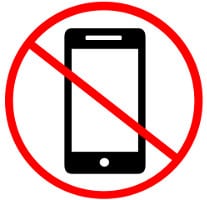“must” is a modal verb.
Pronunciation: /mʌst/
In this lesson, you will learn:
- The form of must.
- The different uses and meanings:
- Obligation and necessity
- Deductions and conclusions
- Rules and laws
- Invitations and encouragement
- Criticism
Form of must
Affirmative form of MUST
subject + must + base form
I must go
you must go
he/she/it must go
we must go
you must go
they must go
Negative full form of MUST
subject + must not + base form
I must not go
you must not go
he/she/it must not go
we must not go
you must not go
they must not go
Negative contracted form of MUST
subject + mustn’t + base form
I mustn’t go
he/she/it mustn’t go
you mustn’t go
we mustn’t go
you mustn’t go
they mustn’t go
Question form of MUST
must + subject + base form …?
must I go … ?
must you go … ?
must he/she/it go … ?
must we go … ?
must you go … ?
must they go … ?
Use and meaning of must
Obligation and necessity (present or future)
We use “must” to describe strong obligation or necessity in the present or future.
Examples:

Mark: I must walk the dog when I get home.
Manager: I must talk to you about your prices.
Supplier: Yes, of course……
Teacher: You must answer all of the questions.
Exception for the past
WARNING – We use “had to” to describe strong obligation or necessity in the past. We do not use “must”.
Form:
subject + “had to” + base form
Examples:
Sarah had to study very hard for the exam.
Jane: I had to help Clare with her homework yesterday.

Deductions and conclusions (present)
When we analyse facts about a situation, we often use “must” to express deductions and conclusions from those facts.
Mark: I got up at 4 am this morning.
Sarah: Oh wow, you must be tired.
Mark: Yes I am!

Sarah: Did David pass his exam?
Jane: Yes, he passed.
Sarah: Fantastic. He must be delighted.
Deductions and conclusions (past)
We use “must have” + past participle to express deductions and conclusions from the past.
Form:
subject + “must have” + past participle
Examples:
Mark: Jane didn’t eat anything yesterday. (past simple.)
Sarah: Why not?
Mark: She must have been ill.

Manager: Why is Mark late?
Jane: He must have missed the bus.
Rules and laws
We use “must” in notices and signs indicating rules, regulations and laws.
Examples:
Passengers must arrive at the airport at least 2 hours before departure. (active voice)
Bags must be placed under the seat. (passive voice)
Hard hats must be worn at all times. (passive voice)

We use “must not” to describe what is not permitted.
Examples:
Members of staff must not park in the customer car park.
Students must not take mobile phones into the exam room.

Invitations and encouragement
We use “must” to make a polite invitation or to encourage someone to do something.
Examples:
Jane: You must come to visit me in London.
Mark: This cake is delicious. You must try it!
Criticism
We use the question form of “must” to criticise someone. We are often angry at someone when we say this. Don’t forget the question mark (?) at the end in written English.
Examples:
Jane: Must you always leave the windows open?
Mark: I’m sorry. I always forget to close them.
Jane: Must you always leave the light on?
Mark: I’m sorry!
More English lessons
Private lesson with a native English teacher
IELTS advice from a successful student
Modal verb SHOULD – form, use and meaning
Modal verb WOULD – Form, use and meaning
Modal verb COULD – Form, use and meaning
English lessons on our Youtube channel

